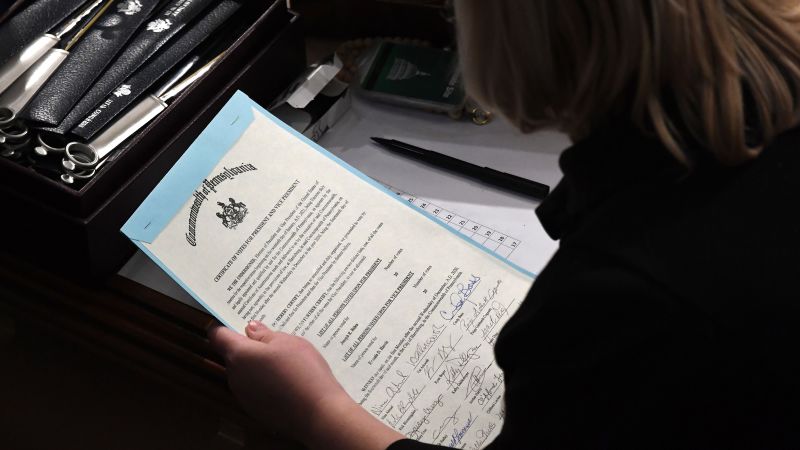Four years after the certification of the presidential election led to rioting at the US Capitol, disputes over the election certification process are increasing in battleground states. These disputes revolve around the power of local election boards to question or even reject election results. Given the slim margins in states like Georgia, Michigan, Nevada, and Wisconsin, the outcome of the election between Donald Trump and Vice President Kamala Harris could hang in the balance. Republicans express concerns about voter fraud, while Democrats fear that officials who buy into conspiracy theories may refuse to certify results, leading to legal challenges and delays that could impact the November election.
In Georgia, for example, Trump-backed members of the state election board recently passed rules that could allow local election boards to conduct investigations that may delay certification. Lawsuits preemptively aiming to prevent challenges to the certification process are emerging nationwide, with varying outcomes. In Michigan, a Republican canvasser faced legal action after alleged threats not to certify the upcoming presidential race, but the issue was resolved when he committed to not intervening in the election process. Similarly, in Nevada, a lawsuit was dismissed after commissioners certified the election, but the option to challenge certification in the future remains open.
Fights over the certification process are not new, with challenges occurring in various states in recent years, including Pennsylvania, New Mexico, Georgia, and North Carolina. 2020 marked a turning point when Republican officials in Michigan initially blocked the certification of Biden’s win in Wayne County, citing concerns over voting irregularities. Efforts to prevent certification increased during the midterms, with challenges arising in different states. Delays in certification occurred in various counties due to concerns over voting machines, absentee ballots, and individual votes. Despite initial resistance, votes were eventually certified, and officials who refused to certify faced consequences such as removal from office or criminal charges.
Legal experts emphasize that state and federal laws regarding the certification process will likely prevent widespread refusals to certify results, which could lead to chaos and fuel conspiracy theories. They anticipate that courts will intervene if necessary to ensure the proper certification of election results. However, the potential for challenges to certification remains a concern due to the increased polarization and skepticism surrounding the electoral process. The impact of these disputes on public perception and the integrity of the electoral system is a key consideration for experts and advocacy groups working to protect the certification process.
As the 2024 presidential election approaches, the battle over certification rules and procedures intensifies, with both Democrats and Republicans taking steps to ensure the legitimacy of the electoral process. The ongoing disputes highlight the fragility of the certification process and the importance of upholding election integrity in a polarized political landscape. The outcome of these legal battles will have far-reaching implications for future elections and the democratic process as a whole. Ultimately, the resolution of these challenges will shape the future of election certification and determine the extent of political influence in the electoral process.













